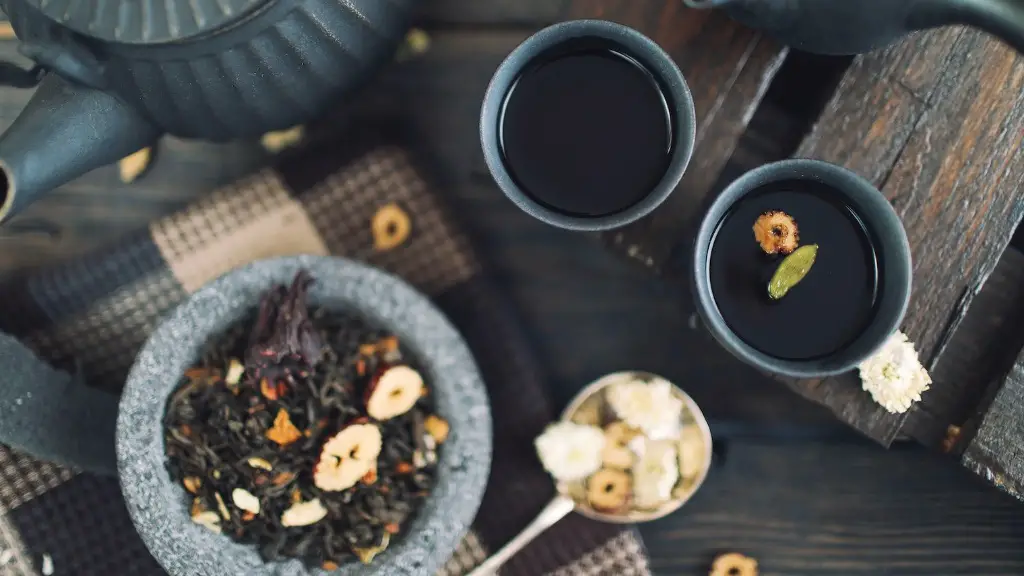Coffee is a delicious, energy-enhancing beverage that many people rely on to get through their days, but is coffee a viable choice when you’re been affected by cold? The average person contracts a cold twice a year, so knowing the answer to this question can be quite helpful.
Broadly speaking, coffee, or any other caffeinated beverage, shouldn’t be consumed when suffering from colds. Caffeine is a diuretic, which means that it suppresses the body’s re-absorption of fluids and can cause dehydration. Since nausea, headaches and other symptoms of a cold can leave one feeling dehydrated, having caffeine can exacerbate these feelings. In addition, caffeine is known to raise heart rate and blood pressure, which can influence various other unpleasant symptoms, such as nervousness, jitteriness and difficulty sleeping.
Relieving symptoms can be easier said than done, however, as some people struggle to make it through the day without caffeine. In that case, a moderate amount of caffeine – roughly one cup of coffee – can be consumed in moderation, as long as it’s balanced with an appropriate amount of hydrating fluids and other beverages like water with lemon or honey. Whichever drink you may choose, it’s best to stay away from sugary or artificial-sugar beverages, which can further dehydrate the body and stop it from fighting the virus.
Whether or not you decide to drink coffee when suffering from colds, it’s just as important to understand the impact that caffeine has on the body. Caffeine, for example, can interfere with breathing, which can make your cold symptoms worse in many ways, especially if you’re suffering from a chronic or acute condition. For instance, drinking coffee when you’ve got a stuffy nose and blocked sinuses may reduce the amount of oxygen that reaches your lungs, making it harder to breathe and creating other issues. On the other hand, if the cold affects your lungs, staying away from coffee may help you breathe.
This is where the importance of listening to your body comes in. If you’re one of those people who can’t go through the day without having coffee, it may be best to opt for a weaker coffee blend or a decaf version of your favorite coffee beverage. Choosing herbal tea over coffee may also be beneficial, since it can provide some relief from sore throat, provide vitamins and increase hydration. Taking smaller sips instead of gulps can reduce the negative effects of caffeine consumption.
Given how closely linked coffee consumption is with dehydration and the intensity of flu symptoms, it’s easy to see why drinking coffee is not recommended when suffering from a cold. Keeping this in mind, if you’re feeling particularly drained of energy, it may be beneficial to keep off caffeine altogether, so as to allow your body to rest, while you take frequent breaks throughout the day and get the proper nutrition and hydration.
Resulting Effects of Caffeine Intake
When it comes to colds, it’s not just about avoiding caffeine consumption altogether, but also understanding the impacts of consumption. Different people may have different reactions to coffee and an increased caffeine intake, with some of the most common repercussions being a raised heart rate, upset stomach, muscle twitches, irregular sleeping patterns, headaches and feeling anxious.
It is important to note that those reactions are usually temporary and rarely last for more than a few days. However, in some cases, they may worsen existing cold symptoms and even lead to complications. For example, heightened blood pressure and heart rate can lead to feelings of lightheadedness, fatigue and a more difficult recovery process.
Moreover, if you’ve been feeling rundown, consuming coffee can heighten fatigue, since the mild stimulation provided by caffeine can temporarily mask existing conditions. By understanding the effects of caffeine on the body, one can be better prepared to make the right choice when deciding whether to drink coffee with a cold.
Another factor to consider is the item that’s used to sweeten your coffee. If you’re opting for something like regular sugar, for example, be aware that it can raise blood sugar levels. Furthermore, if you’re ill, the last thing you want to do is deprive your body from essential nutrients it needs to recover. Therefore, you should avoid artificial sweeteners and limit the amount of regular sweeteners used in order to not overload your system.
All in all, caffeine usage is something quite individual, as everyone’s response to it will vary. Knowing your own body and how it reacts to caffeine will help make an informed decision when you have a cold.
Role of Hydration When Consuming Coffee
In order to appreciate the true effects of caffeine when it comes to colds, it’s vital to understand the significance of hydration. Whether or not you decide to drink coffee, it’s always important to drink plenty of fluids in order to remain hydrated and reduce symptoms.
This means that, if you’re consuming coffee, it’s a good idea to drink plenty of water to counterbalance the diuretic effects of caffeine and help clear your airways. Furthermore, regular fluid intake will help reduce coughing, provide relief from a sore throat and support the immune system.
It should be noted, however, that water isn’t the only way to stay hydrated. Some of the other drinks you could consider are electrolyte-replacing fluids and drinks rich in Vitamin C. In fact, a recent study has revealed that orange juice helps shorten the duration of colds by up to two days. This is due to its high vitamin content, as Vitamin C plays an important role in keeping the immune system strong.
When it comes to hydration, it’s important to stay away from sugary drinks and cocktails, as they can put a strain on the digestive system and interfere with the body’s immune system. All in all, your best bet when dealing with a cold is to get enough fluids and nutrients, keep off coffee and give your body the rest it needs to fight the virus.
What Are The Alternatives?
Given that coffee consumption is not recommended when suffering from a cold, understanding the alternatives can be helpful. For instance, if you’re having regular, mild headaches, drinking one cup of black or green tea can provide some relief. This is due to the fact that tea may contain different natural compounds known as flavonoids, which can help lower inflammation and improve your overall health. On other occasions, herbal infusions such as chamomile or ginger tea may also be beneficial.
The important thing to remember is that tea is still caffeinated, and it’s advised that you limit your intake since even a few cups of tea can increase blood flow and heart rate, aggravating existing symptoms. Furthermore, if you’re drinking more than 3 cups of tea per day, you may eventually experience symptoms like insomnia and irritability.
Finally, getting enough rest is always essential when recovering from a cold, so ensuring that you get 8 to 10 hours of sleep a day is a must. Indulging in activities such as yoga or stretching may also be beneficial, as this may improve your breathing and ease some of the discomfort you’re experiencing or helping you fall asleep better.
Calming Other Symptoms of a Cold
Knowing what to do and what to avoid can help get through a cold quicker and with greater ease. As mentioned before, limiting caffeine consumption and being mindful of the beverages you have at this time can be helpful. Avoiding alcohol, for example, is also recommended, as it can affect the immune system’s ability to fight the virus and make you feel more run-down.
In addition, despite the fact that you may want to eat all the food in sight, it’s best to take your time when it comes to meals and focus on healthy options. Eating nutrient-rich food such as fruits, vegetables, lean meats and whole grains can help boost your immune system, as well as provide all the vitamins and minerals your body needs.
It’s also recommended that you take a trip to the doctor if your cold persists for more than two weeks or if new symptoms begin to occur. A doctor can identify if you have other underlying illnesses and clarify if medications can provide additional benefits in reducing your cold symptoms.
Finally, to reduce the common pain and discomfort associated with colds, some people may benefit from the medicinal properties of items like honey, turmeric or garlic. These items can help calm sneezing and coughing, reduce inflammation, boost the immune system and even provide some much-needed energy.
Understanding Your Own Needs
At the end of the day, it’s important to remember that everyone’s body is different and knowing what works for you can make all the difference. Even if consuming caffeine when you’re feeling unwell isn’t recommended, if you’re apprehensive about going without it, opting for weak or decaffeinated coffee or choosing alternatives can help you avoid complications.
Most importantly, listening to your body and understanding what there is to know about caffeine and hydration can have a massive impact when it comes to getting better more quickly. Having the knowledge to make smart choices and meet your own needs will make a difference in the overall process, so it’s definitely worth taking the time to acquaint yourself with facts.
So, if you’ve caught a cold and you’re considering drinking coffee, it’s important to consider how caffeine and hydration work together to keep your body functioning at its best. Taking your time to assess your needs and weigh the pros and cons of coffee consumption can help make the right choice for your own health.





